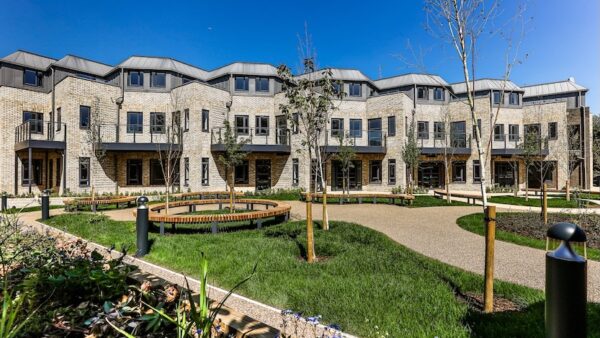As part of Britain’s net-zero strategy, frameworks will deliver much of the country’s massive retrofit programme. But how do you access this work if you are an SME? Jennifer Castle, chief operating officer at LHC Procurement Group, explains the process.
With the cost of Britain’s 2050 net-zero journey estimated to be somewhere north of £1trn, opportunities abound for Britain’s built environment professionals and contractors. Much of this work will be tendered through frameworks. Winning a place on them could create a pipeline of work for years to come. Whether tackling damp, improving insulation, or renovating housing association stock to reduce its carbon footprint while slashing energy bills, there’s no shortage of work.
But how does an SME win a place on a net-zero framework? Can a sole trader apply alongside a building giant? And, from a skills perspective, what information do you need to provide?
This is not a paywall. Registration allows us to enhance your experience across Construction Management and ensure we deliver you quality editorial content.
Registering also means you can manage your own CPDs, comments, newsletter sign-ups and privacy settings.
1. Who is eligible to be considered for a framework?
Historically, smaller building firms and construction trades have found it hard to win contracts from local public sector clients because they either aren’t on the right frameworks or aren’t on them at all. It means that SMEs are missing out on a crucial pipeline of work.
At LHC Procurement Group we work to attract smaller and local businesses and underrepresented groups during our tender engagement process and in the design of our frameworks themselves. We want to attract organisations that have never been appointed to public sector projects before.
In the case of our current net-zero framework, contractors, consultants and suppliers register their interest as a first step and we host workshops with them as we shape our approach.
Can a sole trader apply? In theory, yes, as long as they can satisfy the criteria. Of course, the size of a business and ability to deliver is factored in, but there can be opportunities for all sizes of organisation. We work hard in the design of our frameworks to ensure we don’t put in barriers for micro-organisations (fewer than 10 employees and annual turnover of less than or equal to £632,000) or small firms. Where appropriate, companies can team up via a joint venture or consortium bid.
2. How do I apply and what documents and accreditation do I need?
Opportunities are advertised across portals nationwide to conform with both national and regional (Wales and Scotland) regulations.
There’s an invitation to tender document provided to explain everything about the tender and what you need to do. We also run briefing sessions and you can ask questions throughout the tender submission period.
You’ll have to answer questions to address your company’s financial standing, employment and health and safety practices, and environmental awareness, as well as technical competence such as installation and technical capability and qualifications.
The questions vary based on what the framework is for, but we’re looking for you to demonstrate your knowledge, experience and capability to carry out the typical works the framework is set up for. Case studies are important here, and we want information that is outcomes-focused – think about the benefits and additional social value that has been achieved for clients and residents as a result of the project. Even better if these case studies are public-sector specific.
3. You’re on a framework – what happens next?
‘Calling off’ is the term for when a client, usually an authority of some sort, has decided to use the framework to get their job delivered. We then guide them through the procurement process, providing technical and procurement advice, managing the expressions of Interest, and verifying prices.
When a suitable project comes up, our team will engage with you to discuss the project and gauge your interest in it. If interested and you have capacity, you then compete against other appointed companies on the framework on the specific criteria laid down for that project. We have already established that your company is appropriate for a place on the framework, so it’s just a case of putting a proposal and pricing together for the specific project.
4. What’s the timescale and how do I get paid?
Our frameworks typically run for four years, but may last longer. In that time, a wide range of jobs can be made available from public sector organisations.
Clients contract directly with the appointed company delivering the works using either industry standards contract models (such as JCT or NEC) or their own bespoke T&Cs. Payment terms are set out in the contract. Depending on the size of the project it could be upon completion or in milestone payments. Sometimes, a portion of the contract sum is retained for a period as security against issues that may arise.
5. What does LHCPG’s net-zero framework involve?
LHCPG’s Retrofit and Decarbonisation (N9) framework is designed to support local authorities, housing associations, schools, and other public sector organisations in delivering a range of energy efficiency and decarbonisation works, helping them with their journey to achieving net zero and improving the EPC ratings of their stock.
With damp and mould a major issue across the whole of the UK (over half of privately rented households in England are estimated to be dealing with damp, mould and/or excessive cold in their homes), the challenges are huge.
This is a critical stream of work that will make a difference to the health and wellbeing of residents. It is designed to cover a wide range of technologies and services in the energy sector and is divided into seven workstreams, each containing multiple lots.
The workstreams include: building insulation and performance; heating systems; control and management systems; electrical; multi-disciplinary works and consultancy.
In advance of issuing the tender for the framework in spring 2024, LHC will host an event for suppliers, clients, and partners to discuss what should be included. Taking place in Birmingham on 28 February 2024, companies can find out more here.
Jennifer Castle is chief operating officer at LHC Procurement Group.












